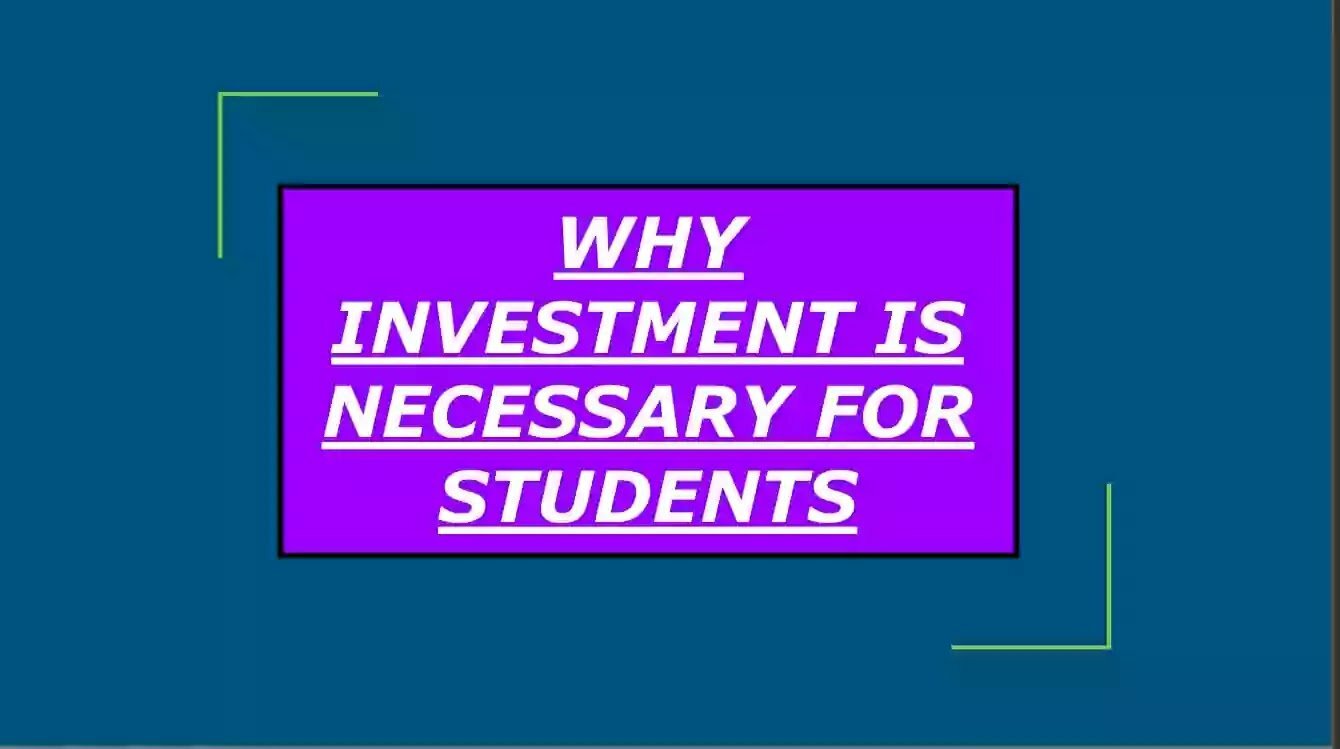
For today’s world investment is not just an option but it is a necessity. If you won’t invest your money then over some time the value of your money would decrease. So the investment is necessary for students.
Let me bring a simple situation in front of you. Suppose you had saved 5 rupees in your piggy bank 2 years back. Now 2 years back you could buy one piece of samosa with that money but now, if you want to buy a samosa then you are asked to pay 10 rupees. So now you can’t buy samosa with that money, this means the value of your money got decreased. So the investment is necessary.
Now why the value of your money got decreased it got decreased due to an increase in inflation. According to SEBI inflation increases with a rate of 4- 6 percent ( the inflation rates are subject to change) each year. So the value of your money decreases when kept idle. So you should invest your money.
You can generally invest your money in these 4 different domains. There are more different investment options but as a student, you should know the following given investment options:
1. Fixed deposit in the bank
2. In real state
3. Investment in metal such as gold.
4. Stock market
4.1. Direct Equity
4.2. Mutual funds.
Contents
Fixed Deposit
Fixed deposit only gives you at most 6-7 percent interest. Here I have mentioned the maximum interest rate given by the banks and financial institutions. Usually, the interest rate given by banks and financial institutions is lower. Earlier the rates of fixed deposits were higher.
But now since banks have sufficient funds after the demonetization so most banks have decreased their FD rates. In a Fixed deposit, you have to deposit your money for a fixed tenure and if you break the fixed deposit before maturity then you are charged. Fixed deposits returns are taxable.
If the Fixed deposit interest return is Rs. 10,000 or greater than this amount then 10% TDS will be deducted from your bank account. And if your PAN card is not linked with your bank then 20% TDS will be deducted from your account. If you don’t know what TDS is then comment below. I will explain you using examples.
I personally don’t suggest you to invest your money in a fixed deposit as in this you can get at most 6-7% interest rate in your investment and each year inflation increases 4-6%( as per SEBI). So you can gain a nominal return of 2-3% return on your investment. Also, this return is taxable. So in my advice, as a student, you should not invest your money for such a minimal return.
Real State
You can purchase a piece of land or a building and sell it later when their prices will increase in the future. According to ET Money, the interest rate given by the real state over 10 years is 10 percent. Note that the returns are not guaranteed. They are subject to change depending on the market condition and the area where you have purchased the property.
It is definite that over a long period the returns are more than fixed deposits. But the real problem with this is that to invest in a real state you need a huge amount of investment. So this option is not preferable for you as a student. But if you are a student who has started earning a decent amount of money, you should consider this option.
Metals
Next, you can invest in precious metals such as gold, silver, platinum, palladium, etc. According to LiveMint.com the average return of gold over 15 to 25 years has been 9.4% to 11.6%. The returns have been pretty decent. But you should not invest your money based on previous returns. The returns are subject to change based on market sentiments and conditions and global economic conditions.
You should invest in metals it helps in diversifying your portfolio. A diversified portfolio minimizes your capital loss risk on investments. But before investing you should acquire proper knowledge about metals and on what factors the metals prices depend.
Stock market
Now you have left with the stock market as an investment option. You can invest in the stock market through different options such as direct equity, mutual funds, ETFs, etc. But here I will especially talk about direct equity and mutual funds. If you want to know about ETFs then comment below I will write a separate article on this topic for you.
I assume that you are a complete beginner and you don’t have any knowledge about the stock market. And investment in the stock market is the real focus of this blog post. So let’s get started:
Direct Equity
Now, what are these stocks? So to make you understand the whole concept of stocks and businesses is beyond the scope of this blog post. To understand it completely you will have to understand the working of a business that how it starts and how capital is raised for the progress of the business. So if you want to learn about it then comment below in this article and I will make a detailed blog post on this.
In direct equity, you directly invest your money in the stock market. In this you purchase the share of any company listed on the stock market and as the company grows the share price of the company increases. This means the value of your money increases as the share price increases. But the converse can also happen if the price of share decreases then the value of your money decreases.
So before investing in the stock market you must have to learn about it. The average return on the stock market is more than 15 percent. As the return is high so the risk is higher too. If you want to get high returns then first learn about the stock market and how it works. If you jump directly into anything without any knowledge then you would mess up with things. This is what most people do and lose their money in the stock market and then they say that the stock market is nothing but a gamble.
I have created a community of students where I teach you about the stock market. Click here to join the group.
So before starting investment in stocks gain knowledge. Then you will be able to make a good amount of return from this.
Mutual Funds
Now you are only left with mutual funds. These are a bit less risky than direct equity investment and you can get a good amount of return from this. There are various types of mutual funds available in the market. But I am talking about those mutual funds that invest their money in the stock market.
The Mutual funds are managed by highly qualified fund managers. So what they do is- They take money from you and invest that money in different companies. These companies are shortlisted by them. And since they have a good knowledge of the stock market and investment so you can get a good amount of return at less risk. But this doesn’t mean that there is no risk involved in it.
Here it has one more benefit that it is less time-consuming as you only have to research to find the right Mutual fund for yourself then the rest will be managed by them. So you don’t need to track the stock market on a daily basis. So as a student this is one of the best possible ways to start your investing journey.
I would recommend you start investing in index mutual funds. I won’t be able to give the full explanation of this. But for your information, I want to add here that index mutual funds invest in top-performing companies of India. So the risk is lower and the return is higher.
Why mutual funds?
1. Its return is more than Fixed deposits.
2. Its risk is lower than the stock market.
3. Tax-free up to to 1 lakh
4. Can start with a small amount of money of just 500.
Some of you may say that investment in Mutual funds is risky and one can lose its money too.
Yes, it is risky but if you go on stats then you can see clearly that in the long run the market increases. So if you have chosen the right Mutual funds or stock then you can be pretty sure that in the long time of 10 to 15 years the value of your money would increase.
To show you the proof here you can see the graph of Nifty from 2001 to 2015.
Graph showing variation in the nifty index funds.

By seeing the above graph one can easily say that in a small period of time there are several ups and downs in the market. But over a period of 15 years, the stock market has increased only. So you should invest in it. As a student, you should invest as you can take more risks at an early age as you don’t have any responsibility at that time.
Final Verdict
So if you are beginning your journey towards investment then start with mutual funds and direct equity. But you don’t have any idea then join my community this will help you.
And if you are thinking that commerce and finance background is necessary for investment then you are wrong. I have no finance background but I have generated consistent profits from the stock market. But I am able to do that because I first learned about the stock market.
Here is a video explanation that I have uploaded on YouTube about why investment is necessary for students?

Hey there! I’m Kuldeep Kumar, and tech is my jam. From the mind-blowing world of AI to the thrilling battlegrounds of cybersecurity, I love exploring every corner of this amazing world. Gadgets? I geek out over them. Hidden software tricks? Bring ’em on! I explain it all in clear, bite-sized chunks, laced with a touch of humor to keep things sparky. So, join me on this tech adventure, and let’s demystify the wonders of technology, one blog post at a time.

